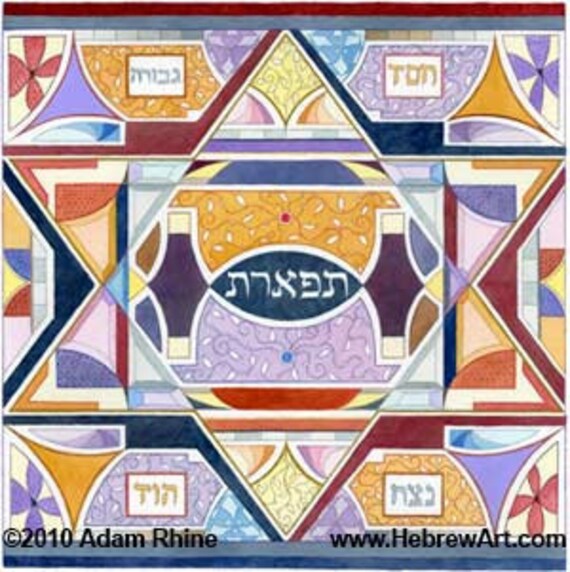 |
| AM YISRAEL CHAI! |
Prior to this parsha we were introduced to the first two Jewish patriarchs, Abraham and his son, Isaac. Both were extremely righteous men who devoted their lives, efforts and hearts to spreading the word of G-d. Each had his own unique strength and ability in spreading Divinity. Abraham epitomized chesed (loving-kindness) and utilized this character trait to disseminate Divine concepts to as broad an audience as possible. The strength in this approach was that it required no prior preparation from his audience; all his disciples were on a level playing field. A potential flaw was that in not making any prior demands on his audience, his message did not effect permanent change. Isaac personified the idea of gevurah (restraint/judgment) and required his disciples to undergo a process of self-refinement prior to receiving his message. The unique paradox highlighted by both of these methods was well described in last week's Chayenu in the Parsha Toldos Overview, page 7:
"Whereas Abraham's approach can be conceived of as a downward vector, bringing Divinity 'down' to even the lowest rungs of humanity, Isaac's approach can be conceived of as an upward vector, elevating people so they can integrate increasingly higher levels of Divine consciousness into their lives."
Both Abraham and Isaac were effective leaders and educators given their audience and the times in which they lived. Jacob, however, epitomizes the concept of tiferes (reconciliation, harmony), personifying the very best characteristics of both his father's and grandfather's methodology. He managed to blend them in a such a graceful way that he is highlighted in six parshiyos as not only the last of the Jewish patriarchs but also as the first and only patriarch to successfully raise all of his children to be completely committed to G-d's will. Jacob saw that to effect lasting and permanent change, he needed to combine seemingly diametric opposites: chesed and gevurah, loving-kindness and judgment/discernment.
How does this relate to the month of Kislev, the darkest time of the year? How does this relate to the story of Chanukah? And how does this relate to the horrendous events that are now occurring in Israel? Switching venues for a moment, I will take you to a maamar (Chassidic discourse) on Chanukah I've been studying by the Lubavitcher Rebbe, Rabbi Menachem M. Schneerson, called (in English) Victory of Light. In the introduction and overview to his discourse, the Rebbe highlights the initial split between the Jews and the Greeks. He explains that the Greeks had no problem with the Jews studying Torah or doing mitzvot. As logical people, they saw many of these laws and customs as sensible and even meaningful. The split occurred when the Greeks could not accept the Jews' fulfillment of mitzvot which did not make sense or hold pragmatic meaning.
The very unique factor of the Chanukah oil itself is that in a sense it epitomizes a significant characteristic of every Jew. There are parts of our soul that fluidly relate to G-d in an intellectual and logical way. There are parts of our soul, that like oil, do not mix with other fluids; this is the part that commits to G-d on an intuitive way that is beyond the parameters of logic and reason. This aspect of every Jew is above intellect; it is supra-rational. The Rebbe goes on to explain the correlation of why upon destruction of the Holy Temple, the Greeks went after the oil. The Temple was filled with things of seemingly greater value than oil! Why was it, then, so important for them to contaminate our oil?
"Every enemy goes after the life-source of their opponent--the wells, the food stocks. The Greeks went after the oil. For therein resides the secret of the Jew. These battles of old are still being fought today. In every generation there are Hamans and there are Greeks..."
The Rebbe continues on to explain that today, "the Greek of old is not always an outsider; he is often alive and well within our own minds, waging a persistent battle against our Divine sensibilities (page 16)."
Abraham and Isaac-- both men of great magnitude and righteousness--acted out of logic and intellect. Jacob, on the other hand, epitomizes that oil aspect in every Jew; he acted supra-rationally, beyond the scope of calculation. He was thereby able to relate to G-d and to inspire those around him in a whole new way, through the characteristic of tiferes. At our very best, we combine these aspects of chesed and gevurah and personify this idea of harmony. In times of darkness, of violence and war--whether it be overseas, in our own backyard, or, G-d forbid, in our own minds, we cannot see the value in that which is above our comprehension. We cannot understand the light that emanates from acts that are supra-rational and above logic. And yet, there is inherent value in that. There is inherent light that emanates only from the disconnect between our rational and supra-rational selves. That is the light which cannot be extinguished. Even and especially in times of great distress and immense darkness, all the layers of ration, intellect and logic are peeled away. All you are left with is the core essence of your Self. You act and exist in those moments out of the truest most beautiful nature of who you are--a G-dly soul. And that is above reason.


No comments:
Post a Comment